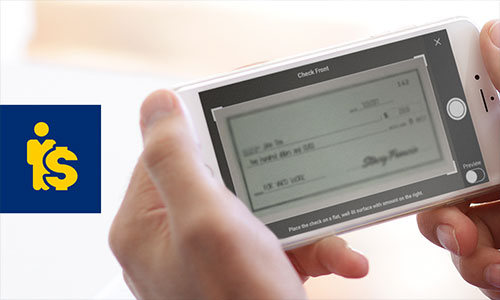With so many demands on your schedule each day, it can be easy to lose sight of financial obligations. How can you remember the due dates for all of your bills, devote time to planning for savings goals, and still keep your monthly budget on track?
One of the best ways to proactively take control of your financial life is to strategically pencil in important milestones and reminders on a calendar. You can either use one of the many free calendar apps available for your mobile device, or download and print a calendar for your home or office. Then, with just a few minutes each week, you can easily keep pace with your monthly, quarterly and annual financial obligations.
Set Aside Time to Track Your Financial Obligations Each Month
Avoid becoming overwhelmed by monthly financial commitments when you set up a calendar to help track:
- Budgeting: Budgeting is a fantastic tool to enforce fiscal discipline in your life. However, it requires both time and effort to yield results. Set up a reminder, or pencil in some time on your calendar each week to track spending and make sure it is within your budgeting limits. When you make this practice a part of your routine, you can help avoid overspending before the next payday arrives.
- Saving account contributions: Pay yourself first by dedicating a portion of your income to one or more savings accounts. A high-yield online savings account is not only a great place to hold emergency funds to handle bumps in the road, but it can also help you save toward future financial goals like a family vacation or a down payment on a car or home. Use your calendar to set aside a few minutes each week to see if your budgeting efforts yielded some extra cash you can move to your savings account.
- Bill payment: Although you can quickly set up automatic payments for many recurring bills through your financial institution, responsibility for paying your bills doesn’t end there. Use a calendar and receive a gentle reminder each week to ensure your account has sufficient funds to handle these automatic payments and make sure that they are paid out correctly and on time.
- Tracking deposits: Do you receive a paycheck via direct deposit? If so, set a reminder on your calendar to confirm that your funds arrived on time and that the dollar amount is correct. Accounting errors, while rare, can cause direct deposits to not show up in your account or appear in the wrong amount.
Plan to Assess Your Financial Health Each Quarter
Once you’ve set up reminders to check in on your monthly budgeting progress, assess opportunities to save and ensure you pay bills on time, take the next step by establishing longer-term reminders including:
- Take a holistic look at your financial progress: Set aside an hour each quarter to determine if you are making progress toward your overall financial goals. Remember that $2,500 you wanted to save to cover holiday gift-buying expenses this year? At your current rate of savings, will you reach this goal? If not, it is time to adjust your budget.
- Check out current interest rates: Have interest rates fluctuated since last quarter? If so, consider the benefits of refinancing your mortgage or, look into growing your money in a term account if rates increased.
Use Annual Reminders to Prepare for Major Financial Commitments
The start of a new year is not only a great time for resolutions but is also a great time to prepare for upcoming financial commitments including:
- Tax season: Get a jump start on filing your taxes by marking your calendar to begin compiling essential tax documents. Don’t forget your W-2 from an employer, 1099s for dividends, mortgage interest payments, child care expenses, charity contributions and more.
- Property tax exemptions: The beginning of the year is also the right time to file for property tax exemptions you earn such as homestead, disability and more. Exemptions vary widely from state to state so be sure to check with your county’s tax assessment office to determine which you may be entitled to receive.
- Check your credit report: With a fresh new year in front of you, it is a great time to pull your free annual credit report. This report shows the status of all accounts associated with your name and social security number such as credit cards, car loans, mortgages and more. Go over this report with a fine tooth comb to locate errors so you can contact the vendor directly to reconcile issues before they affect your credit score.
With just a few minutes each week, and a free electronic or paper calendar at your disposal, you can take your financial planning to the next level.







Comments Section
Please note: Comments are not monitored for member servicing inquiries and will not be published. If you have a question or comment about a Quorum product or account, please visit quorumfcu.org to submit a query with our Member Service Team. Thank you.